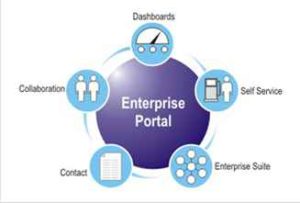DevOps: The Future of ITSM and ITIL
ITSM and ITIL are traditional approaches to how organizations deliver software and other IT services to their customers. With the emergence of cloud technology, there is great pressure on organizations to upgrade their approach to ITSM and ITIL to deliver an experience to customers that they are seeking desperately. This is where Development Operations or DevOps comes in. It is a unique approach to software and service management that is well suited to the cloud environment. This article explains how DevOps can transform current ITIL and ITSM practices, while also exploring ways in which ITSM and ITIL can support DevOps strategies.

How DevOps Promotes ITSM And ITIL
Current ITIL practices can support effective DevOps in different organizations. In fact, the quality of ITIL training offered in any organization to deliver IT services can greatly enhance the quality of DevOps management. The drive towards DevOps is based on the intersection of several important trends, such as social collaboration, mobile computing, big data analytics, and cloud-based technologies.
Specific DevOps roles include business analysts, application developers, project managers, and operations managers. All of these work to transfer data to the network and storage centers. The key area of DevOps is in the realm of ITIL and ITSM which controls the compliance and governance of continuous service delivery.
IT service processes are optimized through DevOps and made available simultaneously with application delivery. This is a critical performance issue in cloud-based networks. The speed of application building is balanced with the speed of service management in the cloud network. As the nature of applications changes and apps become more closely integrated with the operating system of cloud networks, the resources will have to be allocated more efficiently between the two sides of the IT service.
Agility And Capacity Management
Capacity management and agility become the key issues in creating such a system. DevOps along with better ITIL training helps the integration of app development with cloud operations, hence the name DevOps so that apps can become more empowered to access the cloud network resources that they need for a better quality of service to users.
Automated Operations
DevOps can be in the form of automated software, like Duplocloud’s solution, which eliminates the need for a middleman, produces code faster and makes new platforms available within hours. To achieve all of this increase in efficiency in the future, it is necessary to ensure that the IT processes change and the ways of measuring their performance also change over time.
As far as ITSM is concerned, it is necessary for control procedures to be delegated and for processes to be automated. DevOps also addresses changes in project management techniques. It helps companies move to software as a service model and traditional project management techniques need to be modified for agility and speed. Changes in development methods are also required. Thus, the code should be released in real time instead of longer periods.
ITSM concerns include how customers would react to it. Thus, the app continues to undergo improvements even as consumers are using them. This is a radically different approach to software quality management than the traditional approach.
How DevOps Changes IT Operational Delivery
As far as ITSM and ITIL are concerned, DevOps and new OSA certification requirements are changing how operations are perceived by the organization. A cloud-first strategy has to be adopted with the organization acting as a broker instead of an installer of apps. Service quality has to be accepted as a strategic issue with careful management of demand and portfolio management.
Service design also needs to be upgraded by giving more importance to support and capacity management. The service should be made available constantly, especially in high activity periods such as Black Friday sales and so on. At an operational level, access management is an important issue which ensures that only current and authorized employees can access the operations. As organizations move from local hosts to a cloud-based host, service transition also becomes a critical issue for DevOps managers.
How ITSM and ITIL support DevOps
ITSM is extremely important to the cloud environment because it addresses important issues like control over networks, servers, operating systems, storage and applications in various operational models. So DevOps help organizations move from an environment where every aspect of the operations is controlled by the organization to a situation where organizations have no control over the operations and software is delivered as a service. Adapting current ITSM processes to this approach will be a critical factor in the growth of DevOps.
Some of the areas in which DevOps can help to take ITSM and ITIL to the next level is by addressing key issues in demand management. At the same time, ITSM and ITIL staff can help DevOps professionals align traditional methods with cloud-based technologies. Issues like costing and pricing can be addressed through dialogue between professionals from these three different fields.
Portfolio management is another area where understanding business value is critical. Again, all three actors in this triangle can collaborate to find different ways and tools which can help the organization move to DevOps. Also, financial management is another area where some of the most critical questions can be answered by ITSM and ITIL teams.
They can help to integrate service management needs with the software development life cycle. This is the main goal of any DevOps strategy. The strategy also includes understanding the cloud strategies of competitors as well as pricing of the organization’s cloud-based services.
Conclusion
It is high time for IT managers to go back to the drawing board and think about how they can upgrade their ITSM and ITIL processes to adapt to a changing environment. The cloud management industry is growing by leaps and bounds which is creating opportunities for new technologies and management processes to emerge. DevOps is one of them, and it has the potential to dramatically alter the traditional ways of managing IT systems and service delivery models. By focusing on a high level of synchronization, agility and capacity management, DevOps can challenge traditional methods and enable organizations to upgrade their ITSM and ITIL activities.








